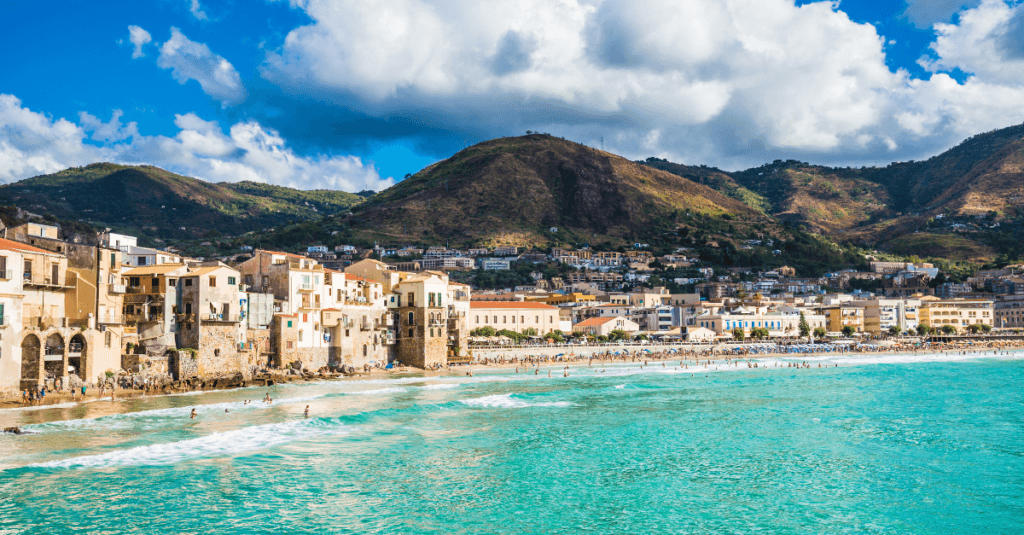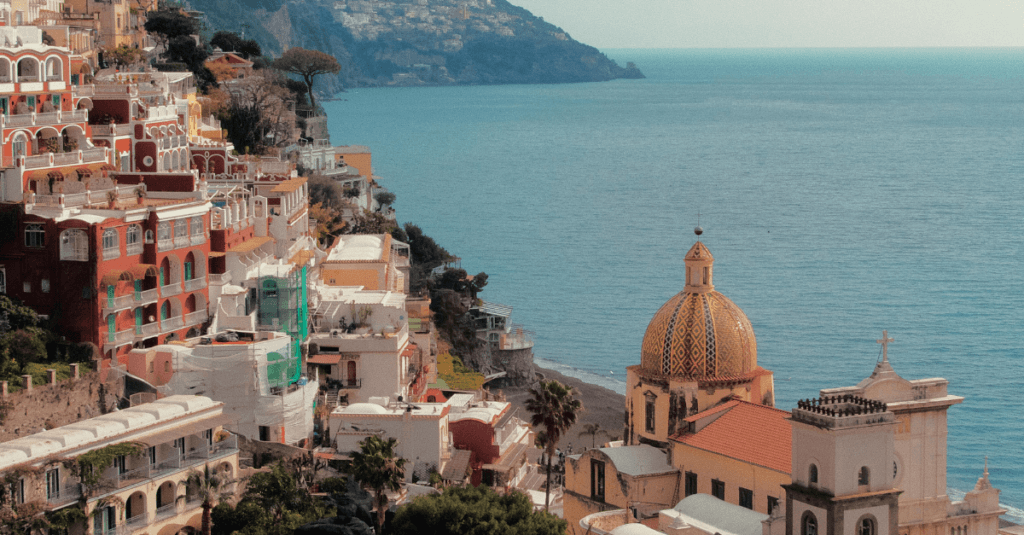For many, retiring in Italy is a dream. Imagine sipping espresso in a sunlit piazza, exploring historic cities, and enjoying world-class cuisine. From its high quality of life to its world-renowned cuisine, Italy is one of the most desirable places to retire.
For non-EU citizens, moving to Italy for retirement isn’t as simple as packing your bags. You’ll need a specific visa to reside in the country long-term. That’s where the Elective Residency Visa (ERV) comes in. It’s meant for retirees who have enough money to support themselves without working. In short, this visa is the key to enjoying your retirement years in Italy.
In this blog, our team of trusted Italian lawyers will guide you through a detailed step-by-step checklist to simplify your move and take the hassle out of retiring in Italy.
Table of Contents
- Checklist for How to Retire in Italy as a Non-EU Citizen
- Step 1: Show Proof of Passive Income for Retirement in Italy
- Step 2: Secure Long-Term Accommodation in Italy
- Step 3: Get Health Insurance to Retire in Italy
- Step 4: Visa Application Documents for Retiring in Italy
- Step 5: Tax Planning Essentials for Retiring in Italy
- Step 6: Best Places to Retire in Italy (2025 Update)
- Step 7: Learn Basic Italian for a Smooth Retirement
- Step 8: Cultural Integration Tips for Retiring in Italy
- How to Retire in Italy with Lexidy
Checklist for How to Retire in Italy as a Non-EU Citizen

We’ve created a complete checklist to help you retire in Italy as a non-EU citizen. Here’s everything you need to know to plan your move!
- Proof of Passive Income – Show financial self-sufficiency through pensions, social security, annuities, rental income, or investments.
- Proof of Long-Term Accommodation in Italy – Secure a long-term rental contract or property ownership.
- Comprehensive Health Insurance – Private health coverage that meets Italian visa requirements.
- Visa Application Documents (with Translations) – Gather the required paperwork and translate the necessary documents.
- Tax Planning Before & After the Move – Understand Italy’s tax system and how it impacts your income.
- Choosing Where to Retire – Explore the best regions in Italy for expats and retirees.
- Learning Basic Italian – Improve your daily life and integration by learning the language.
- Cultural Integration – Open a bank account, build a social network, and adapt to local services.
Each of these steps plays a crucial role in ensuring a smooth transition. Let’s go through them one by one.
Curious to learn more? Visit our Elective Residence Visa service page, where we break down the process and answer some frequently asked questions.
Step 1: Show Proof of Passive Income for Retirement in Italy
One of the most important requirements for retiring in Italy with the Elective Residency Visa is proving that you have stable passive income. Since this visa does not allow employment in Italy, the government requires proof that you can financially support yourself without working.
What Counts as Passive Income?
In Italy, passive income is considered regular, stable earnings that are not tied to active employment or freelance work. This includes:
- Pension payments (either government or private)
- Rental income from properties
- Dividends from investments and stocks
- Royalties from books, patents, or other intellectual property
- Trust funds or annuities
How Much Passive Income Do You Need?
The minimum financial requirement per each applicant is around €31,000 per year. However, these numbers can vary based on the consulate handling your application.
Additionally, having substantial savings can strengthen your application but cannot replace the need for recurring passive income.
What Documents Prove Your Passive Income?
To meet this requirement, you will need to provide:
- Pension statements (official documentation of pension disbursements)
- Bank statements (showing regular deposits over the past 6-12 months)
- Rental contracts and income statements (if you have rental properties)
- Investment or dividend statements (proof of earnings from stocks or funds)
- Trust fund or annuity documentation
Providing a clear and consistent financial record can help avoid delays or rejection.
Step 2: Secure Long-Term Accommodation in Italy
To qualify for the Elective Residency Visa, you must prove that you have secured long-term housing in Italy before applying. This demonstrates to the Italian government that you are serious about relocating and have the financial means to support yourself.
Rental Contracts vs. Property Purchases
To prove you plan on staying in Italy long-term, you have 2 options:
- Long-Term Rental Contract: A long-term (minimum one-year) lease agreement signed with an Italian landlord. Short-term vacation rentals or temporary accommodations (like Airbnb) do not qualify.
- Property Purchase: Owning a home in Italy strengthens your visa application, as it proves a long-term commitment to residing in the country. It is worth noting that purchasing property is not mandatory for this visa.
Requirements for the Visa Application
To prove your accommodation, you must provide one of the following:
- Registered rental contract (contratto di locazione) signed by both parties
- Property deed (atto di proprietà) if you own a home in Italy
All documents must be in Italian and officially registered with the local authorities. A hotel reservation or temporary housing will not be accepted. Having long-term housing secured before applying is essential, so it’s best to start the search early. Are you considering purchasing a property in Italy as an American? We’ve got you covered with our expert guide!
Step 3: Get Health Insurance to Retire in Italy

Italy has a high-quality healthcare system, but as a non-EU retiree, you must secure private health insurance before applying for the Elective Residency Visa.
Public vs. Private Healthcare
- Public Healthcare (Servizio Sanitario Nazionale – SSN): Italy’s national health system offers affordable medical services, but non-EU retirees are not automatically eligible upon arrival. You may apply for access later by paying an annual fee.
- Private Healthcare: Since the visa requires comprehensive coverage before entry, private health insurance is the only immediate option for retirees moving to Italy.
Visa Requirements: What Coverage Do You Need?
Your private health insurance must meet these key criteria:
- Minimum coverage of €30,000 per year
- Cover all medical expenses, hospital stays, and emergencies
- Valid for at least one year
- Accepted by Italian authorities
Tips for Choosing Expat-Friendly Insurance Providers
When selecting a provider, look for:
- Global insurance companies that specialize in expat health plans
- Policies that allow direct billing with Italian hospitals
- Multilingual customer support
- Coverage for pre-existing conditions if needed
Before applying for your Elective Residency Visa, ensure your policy is fully compliant, and have your documents translated into Italian for submission.
Step 4: Visa Application Documents for Retiring in Italy
| Document Name | Translation Required? | Apostille/Legalization Required? | Notes |
| Valid Passport | No | No | Must be valid for at least 3 months beyond the expiration date of your visa. |
| Completed Visa Application Form | No | No | Available at the Italian consulate or embassy. |
| Proof of Passive Income | Depending on each Consulate | No | Bank statements, pension statements, rental income proof, dividends, or investments. |
| Official Tax Returns | Depending on each Consulate | No | Typically last 2 years, proving an overall good financial health. |
| Long-Term Accommodation Proof | No (this will be in Italian) | No | Signed rental contract or property deed. |
| Comprehensive Health Insurance Policy | Yes (or in Italian) | No | Must meet visa requirements for full medical coverage in Italy. |
| Proof of Civil Status | Yes | Yes | Required if applying with a spouse or dependents. |
| Criminal Background Check | Depending on each Consulate | Yes | Issued by your home country within the last 6 months. |
| Flight Reservation/Travel Itinerary | No | No | Often requested but not always necessary. |
| Consular Visa Fees Payment Receipt | No | No | Proof of payment for visa processing fee. |
Applying for Italy’s Elective Residency Visa requires careful document preparation. We have compiled a full checklist of the required documents, along with key considerations for translations, apostilles, and expected processing times:
- Completed visa application form
- Valid passport (with at least two blank pages and validity of at least three months beyond your planned stay)
- Proof of passive income (pension statements, rental agreements, dividends, etc.)
- Proof of long-term accommodation in Italy (rental contract or property deed)
- Comprehensive private health insurance (covering at least €30,000 per year)
- Financial statements (bank records from the past six months proving stable income)
- Criminal background check from your home country (depending on the Consulate)
- Two recent passport-sized photos
- Detailed cover letter explaining why you want to retire in Italy and how you will sustain yourself financially
Certified Translations and Apostille: What’s Required?
Many of these documents must be translated into Italian and certified before submission. Here’s what to expect:
- Apostille Legalization: Some documents, such as your criminal background check and financial statements, may require an apostille or notarization to be accepted by Italian authorities.
How Long Does It Take?
The Elective Residency Visa process can take several months, so it’s essential to apply well in advance.
- Document preparation Typically takes roughly 2-4 weeks. This includes gathering paperwork, getting translations & apostilles.
- Visa appointment & processing can be expected to take 30 to 90 days (depending on the consulate and application volume).
- Move to Italy & Residence Permit Application: Once in Italy, you have eight days to apply for your Permesso di Soggiorno (residence permit).
Step 5: Tax Planning Essentials for Retiring in Italy

There is a lot to consider when it comes to taxes, especially regarding foreign pensions, double taxation agreements, and wealth taxes. Proper planning ensures compliance and can even help you reduce your tax burden.
How Are Foreign Pensions Taxed in Italy?
Italy taxes worldwide income for residents, including pensions from abroad. The tax rate depends on your total annual income and is subject to progressive taxation. We have compiled a breakdown of tax brackets in Italy below:
- Up to €28,000 – 23%
- €28,001 to €50,000 – 35%
- Above €50,000 – 43%
There are some exceptions to the above brackets:
- Some government pensions may be tax-exempt in Italy, depending on tax treaties.
- Certain Italian regions offer special tax incentives for foreign retirees.
Double Taxation Agreements (DTAs)
To avoid being taxed twice on the same pension income, Italy has double taxation treaties with many countries, including the UK, USA, Canada, and Australia.
If your home country withholds tax from your pension, you may be able to claim a tax credit in Italy. You must declare your pension in Italy and submit relevant forms to ensure the tax treaty benefits apply.
Wealth Tax & Other Tax Obligations
Retirees in Italy should also be aware of the following taxes:
- IVIE (Property Tax on Foreign Real Estate) – 0.76% annual tax on property owned abroad.
- IVAFE (Tax on Foreign Financial Assets) – A small tax on foreign bank accounts and investments.
- Annual Tax Return Filing – Even if you have no Italian income, you must declare foreign assets and income.
Planning Ahead to Reduce Tax Liability
- Check tax treaty benefits before moving.
- Consult a tax advisor to determine if your pension qualifies for exemptions.
- Consider relocating to tax-friendly regions, such as Sicily, Sardinia, Calabria, or Puglia, which offer reduced tax rates for retirees.
Proper tax planning ensures you maximize your retirement income while staying compliant with Italian laws.
Step 6: Best Places to Retire in Italy (2025 Update)
One of the most exciting parts of retiring in Italy is choosing where to settle down. From charming countryside towns to breathtaking coastal regions, Italy offers a variety of lifestyles, cost-of-living options, and expat communities. Let’s take a look at some of the best places to retire in Italy.
Tuscany: The Classic Italian Dream

Perfect for: Cultural enthusiasts, countryside lovers, wine connoisseurs.
Tuscany is known for rolling vineyards, its Renaissance cities (such as Florence, Siena and Lucca), and of course its rich cultural scene. The cost of living is slightly higher that other Italian regions. Florence in particular has a high cost of living, whereas smaller towns such as Arezzo and Lucca are more affordable.
In Tuscany, you can expect to find a mix of locals and expats. Cities such as Florence and Pisa will are tourist hotspots but you will notice more locals outside of peak seasons.
Sicily: Affordable Island Living

Suitable for: Retirees seeking low costs, warm weather, and Mediterranean charm.
Sicily is renowned in Italy for its laidback lifestyle, the year-round warm weather and its stunning coastal towns. Sicily is a more affordable option as its property prices are significantly lower than Northern Italy. Sicily has always had a strong local community. However, in recent years there has been a growing expat presence – especially in Palermo, Catania and Taormina.
Amalfi Coast: Luxury & Stunning Views

Best for: Retirees looking for an elegant lifestyle with breathtaking scenery.
The Amalfi Coast, with its picturesque cliffside towns, world-famous cuisine, and vibrant tourism, is one of Italy’s most vibrant regions. The breathtaking views, however, come at a cost as it is one of the most expensive regions to live in the country. Positano, Ravello and Amalfi have some of Italy’s priciest real estate. Amalfi Coast is one of the most popular spots in the country for tourists, especially in summer, but it’s also a hotspot for wealthy retirees.
Umbria: The Tranquil Alternative to Tuscany

Ideal for: Those seeking an authentic, peaceful Italian experience.
Umbria, located south-east of Tuscany is known for its rural charm, medieval villages and strong Italian traditions. The region is more affordable than Tuscany but has very similar beauty and cultural appeal. There is not a very strong expat presence in Umbria currently, however cities such as Perugia and Orvierto are becoming more popular for foreigners.
Cost of Retiring in Italy
| Region | Cost of Housing | Daily Expenses | Expats Presence |
| Tuscany | High in cities, moderate in smaller towns | Moderate to high | Strong (especially Florence) |
| Sicily | Low | Low | Growing expat community |
| Amalfi Coast | Very high | High | Seasonal expat community |
| Umbria | Moderate | Moderate | Mostly locals with some expats |
Choosing where to retire in Italy depends on your lifestyle, budget, and desire for an expat or local community. Each region has something unique to offer, making Italy a fantastic choice for long-term retirement.
Step 7: Learn Basic Italian for a Smooth Retirement
While many Italians in tourist-heavy areas speak English, learning basic Italian is essential for a smoother retirement experience. It may take some time to comfortably hold conversations in Italian, but locals will appreciate it if you make an effort in stores and restaurants.
Why Learning Italian Matters
- Daily Life: Ordering at restaurants, shopping, and asking for directions become much easier.
- Legal & Visa Processes: Some immigration offices may require documents or interactions in Italian.
- Building Connections: Locals appreciate even a small effort to speak their language, helping you make friends and feel at home.
- Accessing Services: Banking, healthcare, and public services often require at least basic Italian proficiency.
Practical Tips for Learning Italian
1. Use Language Apps for Daily Practice
- There are many mobile apps available that are great for beginners to learn common phrases.
- You can practice speaking, listening and learning as well as meet other language learners to practice your conversation skills.
2. Enroll in Local Language Classes
- Community Centers & Universities offer Italian courses for expats.
- Private tutors and language exchanges help with real-life conversations.
3. Immerse Yourself in Italian Media
- Watch Italian TV shows and listen to local radio stations.
- Read newspapers like La Repubblica or Il Corriere della Sera to pick up useful vocabulary.
- Listen to Italian podcasts and music for a more passive method of learning.
4. Practice with Locals
- Join expat meetups with language exchange opportunities.
- Visit small cafés, markets, and local events where you can practice in a friendly setting.
Do You Need to Be Fluent?
No, fluency isn’t essential, but learning essential phrases will make your transition easier and help with integration, paperwork, and daily life. Taking the time to learn even basic Italian can significantly improve your retirement experience in Italy.
Step 8: Cultural Integration Tips for Retiring in Italy
Moving to Italy isn’t just about securing a visa—it’s about adapting to a new way of life. Cultural integration and setting up essential services will make your transition smoother and help you feel at home.
Opening a Bank Account
Having a local bank account is essential for paying utilities, and handling daily expenses. Here’s how to get started:
- Required documents often include your passport, Italian tax code (Codice Fiscale), proof of address, and visa/residence permit.
- Intesa Sanpaolo, BNL, and online options like N26 for are popular choices for expats moving to Italy.
- Some banks require in-person visits, so it’s best to book an appointment in advance.
Joining Expat Communities
Connecting with fellow expats can help with the transition, provide local insights, and offer a sense of community.
- Expat groups on social media (e.g., “Expats in Italy” or city-specific groups like “Expats in Rome”).
- Internations & Meetup.com for networking and social events.
- Local clubs and volunteer groups to integrate with both expats and locals.
Navigating Italian Bureaucracy
One of the few downsides to Italy is its complex bureaucracy, so patience is key. Here’s what you need to know:
- Codice Fiscale: This tax number is required for almost everything—from renting an apartment to opening a bank account. You can get it at the local Agenzia delle Entrate office.
- Residence Registration: With an Elective Residence Visa you will need to register at the local Comune (town hall).
- Healthcare Enrollment: Once settled, you can register with the national health system (SSN) if eligible.
Embrace the Italian Way
Italy has a more relaxed, relationship-based approach to administration. Things may take time, but politeness, persistence, and local connections can go a long way. Having a local contact or legal expert can also speed up bureaucratic processes and ensure everything is done correctly.
How to Retire in Italy with Lexidy
Retiring in Italy is a dream for many, but successfully obtaining the Elective Residency Visa requires careful planning and the right documentation. From proving your passive income and securing long-term accommodation to navigating tax requirements and integrating into Italian culture, each step is crucial for a smooth transition.
Ready to start your retirement in Italy? Let Lexidy’s legal experts handle the complexities while you focus on embracing la dolce vita.
Whether you’re ready to move forward or just exploring your options, you’ll find everything you need on our Elective Residence Visa service page, or simply fill out the form below to speak with our team.

